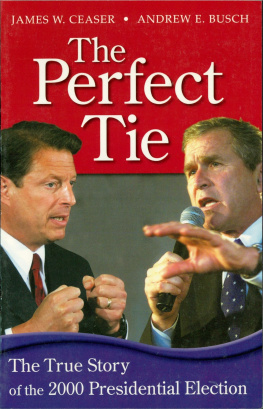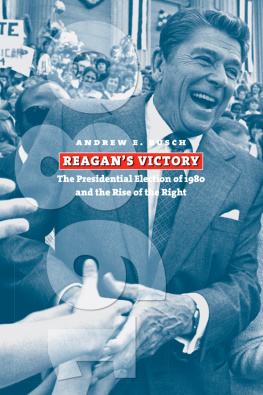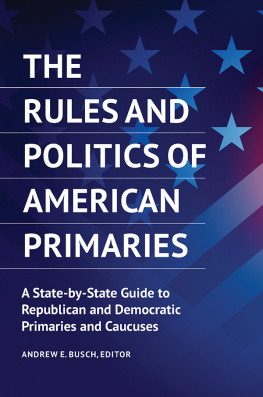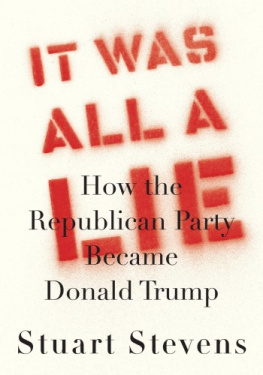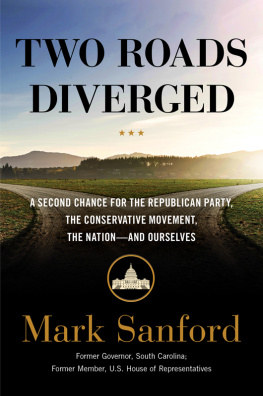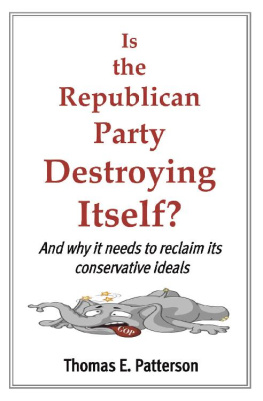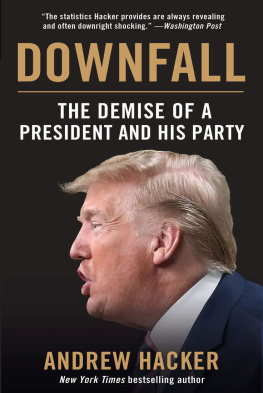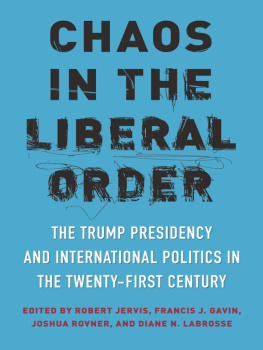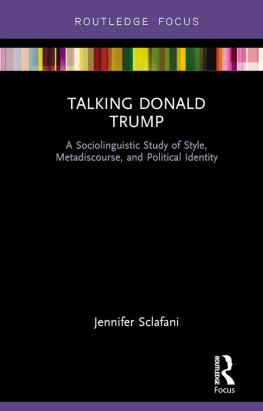David Brady is the Davies Family Senior Fellow, Emeritus, at the Hoover Institution and the Bowen H. and Janice Arthur McCoy Professor of Political Science in the Stanford Graduate School of Business. He has been widely published in books and journals on elections, politics, and policy.
Andrew E. Busch is Crown Professor of Government and George R. Roberts Fellow at Claremont McKenna College, where he teaches courses on American politics. He is author or coauthor of numerous books, including, most recently, Divided We Stand: The 2020 Elections and American Politics (Rowman & Littlefield, 2021).
James E. Campbell is UB Distinguished Professor of Political Science at the University at Buffalo, SUNY. He is the author of Polarized: Making Sense of a Divided America (Princeton, 2016). His previous books include The American Campaign, Cheap Seats, The Presidential Pulse of Congressional Elections, and Before the Vote. He is also the author or coauthor of more than eighty book chapters and articles on American politics.
Morris Fiorina is a senior fellow at the Hoover Institution and the Wendt Family Professor of Political Science at Stanford University. His current research focuses on elections and public opinion with particular attention to the quality of representation: how well the positions of elected officials reflect the preferences of the public.
John H. Hinderaker is president of the Center of the American Experiment. He practiced law for forty-one years and cofounded the website Power Line in 2002. John is a frequent commentator and guest host on national and local television and radio programs.
Charles R. Kesler is the Dengler-Dykema Distinguished Professor of Government at Claremont McKenna College. He is editor of the Claremont Review of Books and the author of Crisis of the Two Constitutions: The Rise, Decline, and Recovery of American Greatness and I Am the Change: Barack Obama and the Future of Liberalism. In 2017, Politico magazine named Kesler to its annual Politico 50 list of the key thinkers, doers, and visionaries who are reshaping American politics and policy, and in 2018 the Lynde and Harry Bradley Foundation awarded him a Bradley Prize.
William G. Mayer is a professor of political science at Northeastern University. He is the author or coauthor of eleven books, including, most recently, The Uses and Abuses of Politics: Karl Rove and the Bush Presidency. He has also written numerous articles on public opinion, voting and elections, the presidential nomination process, and media bias.
John J. Pitney Jr. is the Roy P. Crocker Professor of American Politics at Claremont McKenna College. He has authored or coauthored a dozen books, including After Reagan: Bush, Dukakis, and the 1988 Election (2019) and Un-American: The Fake Patriotism of Donald J. Trump (2020). In 2012, the Princeton Review named him one of the three hundred best professors in the United States.
Glenn Harlan Reynolds is the Beauchamp Brogan Distinguished Professor of Law at the University of Tennessee. A member of USA Todays board of contributors, he also writes regularly for such publications as the Wall Street Journal, the Atlantic, and the New York Post. His books include The Social Media Upheaval, The Appearance of Impropriety (with Peter W. Morgan), and An Army of Davids.
Douglas Rivers is a senior fellow at the Hoover Institution and a professor of political science at Stanford University. He is also the chief scientist at YouGov PLC, a global polling firm.
Steven E. Schier is the Emeritus Congdon Professor of Political Science at Carleton College in Northfield, Minnesota. He is the author or editor of twenty-one books. His newest volume, coedited with Todd E. Eberly of Saint Marys College of Maryland, The Trump Effect: Disruption and ItsConsequences in U.S. Politics and Government, was published by Rowman & Littlefield in 2022. He has also written numerous articles on the presidency, Congress, political parties, elections, and American foreign policy.
If a battle cannot be won, do not fight it.Sun Tzu
T hat is a lesson Donald Trump never seems to learn. Trumpism contains electoral and policy opportunities for the Republican Party, but only if Trumps unending fondness for conflict is abandoned as the partys operating premise. That requires the party to gradually move beyond Trump himself. Times change, new events make new realities, and people move on. America and the GOP will eventually move on from Trumpbut how soon that happens is the crucial matter. The GOP needs to manage that transition to retain the electoral and policy benefits of Trumpism without suffering the consequences of Trumps abrasive personality and popular vote ceiling. Trump governed according to his successful celebrity formula in the popular culture, but that did not work well in governance. It ensnared him in many battles he could not win and should not have waged. His political style and issue positions can win down-ballot races and around 47 percent of the national popular vote but cannot build a working majority (let alone a sustained one).
TRUMP THE CELEBRITY
The Merriam Webster Online Dictionary defines celebrity as the state of being celebrated; fame and a famous or celebrated person. Donald Trump has spent his adult life pursuing both definitions of the word, seeking fame as a celebrated person. He has succeeded to an extent few would have predicted when he got his start in New York real estate in the late 1970s. Even before he was president, Trump himself and his brand were among the most famous in the United States and around the world.
Writing before Trump gained the White House, media critic Neal Gabler explained contemporary celebrity a bit further, describing it as human entertainment... a person who, by the very process of living provided entertainment for usa definition that embraces... businessmen like Donald Trump. For Gabler, the narrative provided by a celebritys life is the key source of fame.
Donald Trump has spent his entire adult life crafting a narrative that gains and keeps public attention. Why? His personality made it an essential life quest. He also views fame as vital to business success. At several key moments, celebrity boosted Trumps financial and political fortunes. It proved a good bet for him.
The Trump approach to celebrity has several features. First, his search for the spotlight is constant, occupying much of his time and energy since his career began over forty years ago. Second, Trump alone directs his celebrity efforts. Though he has hired public relations assistants, ultimately Donald Trump has always taken charge of his personal publicity campaign. Third, it involves antics and verbal eruptions beyond the ken of most people. Trump has had few compunctions about how he kept in the public eye, resorting to sex talk on Howard Sterns radio show, fake battles in the ring of the World Wrestling Federation, and sponsorship of multiple beauty pageants. He has invited coverage by supermarket tabloids of his divorces and affairs, operated several prominent casinos, and used Twitter to issue venomous attacks on those arousing his ire. Fourth, Trumps attention-getting behavior has regularly involved exaggerations and falsehoods, employed for sensational effect. His blind spots notwithstanding, Trump understands how the media works and how to garner its attention.
It is striking that Trumps modus operandi changed little once he became president. But what gained him attention for decades in Americas pop culture often did not translate well in governing circles. His constant verbal assaults on a vast array of targets created incessant turmoil and conflictcostly for any presidents popular supportwhile yielding a low percentage of celebrity-style victories. Such counterproductive behavior is deeply rooted in Trumps personality. His pursuit of short-term headlines and distractions helped him as a private citizen, but voters paid more consistent attention to his louche behavior in the Oval Office.


